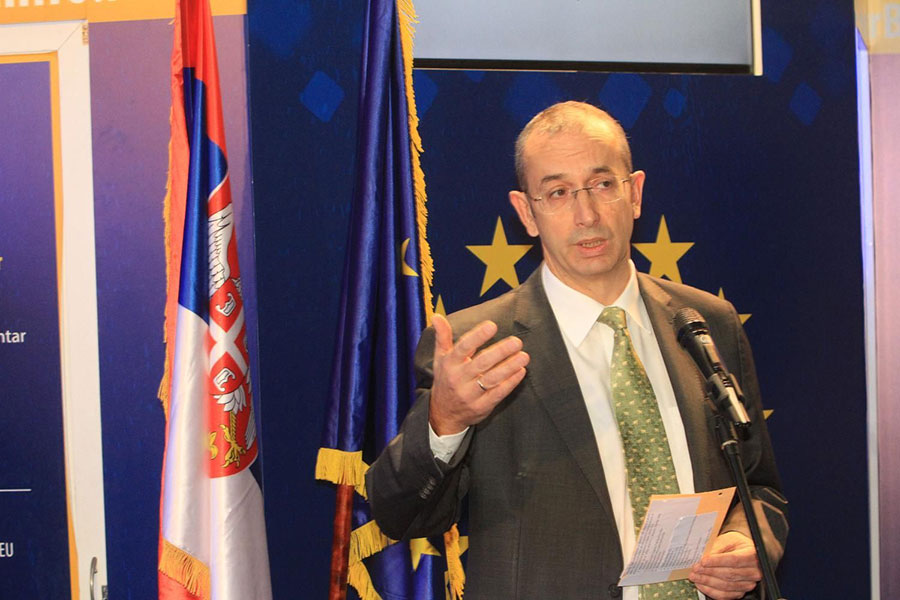Head of the European Union Delegation to the Republic of Serbia, ambassador Michael Davenport, spoke to the website SEEcult.org about the chances of the culture domain within the process of Euro-integrations, noting that culture is the key for both promoting certain countries, but also for joint European values and development of solidarity. Davenport considers the fear that is felt in a part of the public in Serbia over the future of Cyrillic alphabet after the country joins the EU as baseless and believes that there has been rising awareness that the European Union can have a crucial role in promoting culture of individual countries.
– What can be expectred in the culture domain after Serbia joins the European Union?
Michael Davenport: We do not talk often enough about cultural aspects of the European integrations. What is very important for the EU, both for the member states and candidate countries, is that the EU offers a great number of new opportunities and possibilities. Serbia, as a membership candidate is already taking part in a large number of EU projects and programmes in the culture domain. Maybe the biggest programme is Creative Europe. We see concrete results at the Book Fair this year – in programmes, publications, books and events rising from Serbia’s participation in this programme. On the other hand, EU supports various cultural events in Serbia. For example, a great Belgrade Dance Festival which now enjoys international reputation. We also supported a Children Theater Festival in Subotica this year, Mokranjac days in Negotin…
Culture and promotion of individual cultures, cultures of individual countries is a key of European values – European solidarity. We can promote solidarity between each other, but we can also promote our own, individual cultures.
Which are, according to You, the most present myths about EU?
Michael Davenport: You probably think of a notion that there will be problems with Cyrillic alphabet in the EU. This is not the case. Cyrillic alphabet is already officially in the European Union, having in mind that Bulgaria is a member-state. When Serbia becomes the EU member, Serbian language will also become the official EU language, together with Cyrillic alphabet.
There is not much attention given to culture during the process of Euro-integrations, but is it possible to send a stronger message that the national cultural identity can be protected with more investments in culture and strenghtening capacities of cultural institutions and orgranisations to enable tem to use more of available European funds?
Michael Davenport: I think this is crucial. Every EU member state wants, of course in solidarity with other European countries, to protect its own culture, traditions, literature…
Also, there is a rising awareness that the EU can play a very crucial role in that very domain, by promoting individual countries and their cultures and artists. During the 60th Book Fair in Belgrade we had certain examples of that, like the European Book Award. Serbian authors have so far won this award – Jelena Lengold, for example.
The interview is published on www.SEEcult.org




